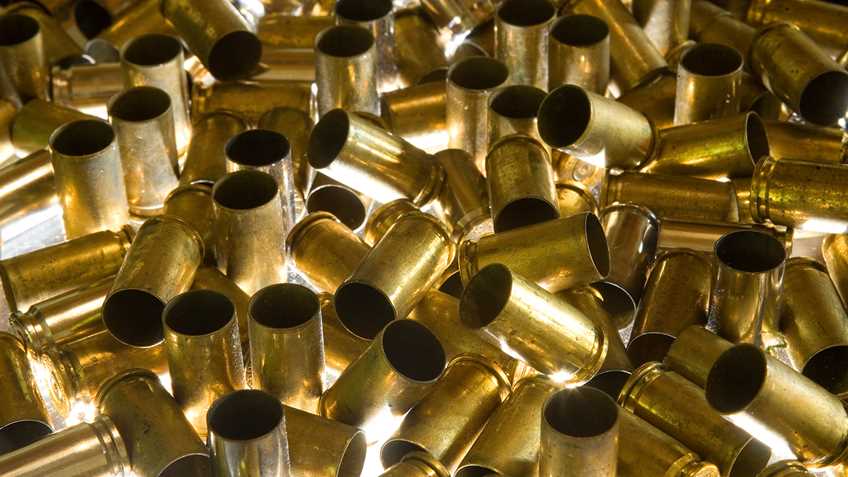Ammunition

Since the 1960s, gun control supporters have tried to get one or another variety of ammunition banned, severely restricted, prohibitively taxed or excessively regulated, to discourage the acquisition of guns and undermine their use.
For example, though the Gun Control Act of 1968 preamble stated that the law was not intended “to place any undue or unnecessary Federal restrictions or burdens on law-abiding citizens with respect to the acquisition, possession, or use of firearms,” the law required purchasers of handgun-caliber ammunition and rifle-caliber ammunition that could be used in a handgun to sign ledgers documenting their purchases. Because the requirement resulted in a massive amount of paperwork that served no law enforcement purpose, Congress in 1982 rescinded it as it applied to .22 rimfire ammunition and in 1986, as part of the Firearms Owners Protection Act, rescinded it as it applied to center-fire ammunition.
In the 1980s, gun control supporters claimed they wanted to restrict new handgun bullets made of metals harder than lead, which had been invented to enable law enforcement officers shoot through walls and doors, but they instead pushed legislation that would have banned traditional ammunition manufactured with bullets made of lead, commonly used for self-defense, hunting and sports. The Departments of Justice and the Treasury, and the NRA, opposed the legislation and the NRA helped write the “armor piercing ammunition” law that Congress instead adopted in 1986.
In the 1990s, gun control supporters again proposed banning traditional ammunition, a move rejected by the Treasury Department. Separately, they also sought a 1,000 percent tax on 9mm, .25, and .32 caliber ammunition, a 50 percent tax on all handgun ammunition, a ban on mail-order ammunition sales, a requirement for a background check to purchase ammunition, and a limit on the amount of ammunition a person could own without an “arsenal license.”
In February 2015, two years after failing to get Congress to ban the AR-15 and other general-purpose rifles, the Obama administration attempted to bypass Congress to ban the second most common ammunition used in the rifle. It withdrew the proposed ammunition ban after a majority in each house of Congress and over 80,000 Americans opposed the ban in letters and emails to the Bureau of Alcohol, Tobacco, Firearms and Explosives, and Congress threatened to reduce the chronically problematic agency’s budget.
Gun control supporters quickly took advantage of the situation to again call for a ban on traditional ammunition, like the bans that Congress rejected in 1986, and the Treasury Department rejected in 1997. Meanwhile, gun control supporters are trying to get traditional ammunition banned on environmental grounds as well.
Monday, October 20, 2025
On Tuesday, October 21st, the Joint Committee on Environment and Natural Resources will hold a hearing on dozens of ...
Tuesday, September 2, 2025
On Friday, August 29th, the California Senate and Assembly Appropriations Committees advanced several anti-gun bills that could receive ...
Monday, August 4, 2025
It goes without saying that banning guns is not the only way to effectively disarm civilians.
Monday, July 7, 2025
The recently concluded negotiations on the United Nations’ Global Framework on Through-Life Conventional Ammunition Management (Framework) should be of grave ...
Tuesday, June 3, 2025
On June 2, the legislature gave final passage to House Bill 289, to enhance and strengthen protections for firearm ...
Friday, May 30, 2025
This week, the Senate Judiciary C Committee voted to advance House Bill 289, to enhance and strengthen protections for ...
Thursday, May 29, 2025
Yesterday, May 28, Governor Ron DeSantis signed House Bill 6025 into law protecting our Second Amendment Rights during a state of emergency. ...
Wednesday, May 7, 2025
This week’s “Gun Day” was postponed by the House Administration of Criminal Justice Committee and could be rescheduled ...
Tuesday, April 8, 2025
Last night, the Maryland General Assembly adjourned Sine Die from the 2025 legislative session. This year several pieces ...
Wednesday, March 26, 2025
On Monday, March 24, the Assembly passed several gun control bills. Most of the bills addressed issues which ...
 More Like This From Around The NRA
More Like This From Around The NRA




























